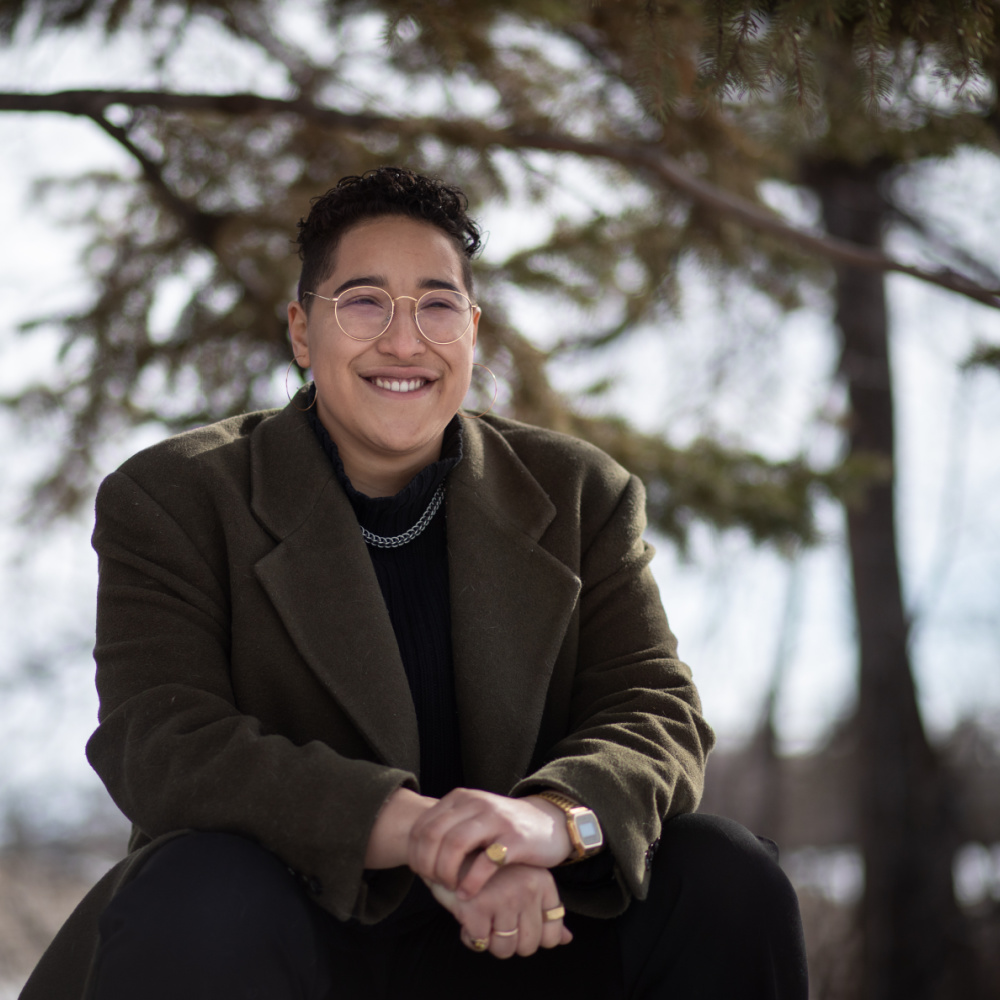Julia-Simone Rutgers
Reporter
Bachelor of Journalism (Hons), 2019
I love the in-depth, on-the-ground style of reporting that I get to do.
In her short career as a journalist, Julia-Simone Rutgers has experienced both the highs and lows of the contemporary media landscape.
In 2019, after graduating from the University of King’s College with a degree in journalism and Contemporary Studies, she got a job at the Star-Metro when it operated in Halifax. But only a few months later, she was out of a job, as was the entire staff, when The Toronto Star shut down its small dailies in Vancouver, Calgary, Edmonton, Toronto and Halifax.
Such has been the fate of traditional print media, large and small, across the country, a shadow of the glory days for newspaper competition in Halifax, when The Daily News (1974-2008), The Coast (online since the onset of the pandemic). and The Chronicle Herald duked it out for readership and ad revenue. The days of the 80-page newspaper landing on the doorstep with a thud are long gone.
In the digital age, media survivors have found a way to exist through a variety of approaches, with innovation being key. Such as the partnership between The Winnipeg Free Press, one of the oldest independent daily newspapers left in Canada, and The Narwhal, a national non-profit news site supported largely by donations, that employs Julia-Simone as a Manitoba-based reporter specializing in environmental issues. Her stories are published by both media outlets and her position is funded through the Winnipeg Foundation, the oldest community foundation in Canada.
“It’s very interesting to be in this shared position,” says Julia-Simone, 25, who grew up in Calgary. “It benefits from the local resources of the Free Press and the national reach of The Narwhal … to have the traditional and the digital maverick working in tandem means everyone learns a lot from each other.”
In 2023, Julia-Simone was recognized for her climate-change reporting in the newly created position by being awarded the Goff Penny Memorial Prize for Young Journalists. She also won a silver medal at the Digital Publishing Awards in 2023 for her coverage of the Peguis First Nation’s battles with floods and was a finalist at the 2022 National Newspaper Awards for a series of stories on the everyday impact of climate change on Manitobans.
With a passion for social justice and investigative reporting, Julia-Simone feels grateful to have a “beat,” in old-timey journalism parlance, that allows her to dig deep into issues and follow through on stories as they develop over time. For more than a year, Julia-Simone has been following the Sio Silica mine proposal to extract silica sand for the manufacture of green technologies, a proposal very recently rejected by the NDP government in Manitoba.
“I love the in-depth, on-the-ground style of reporting that I get to do,” says Julia-Simone, who has sat in on hearings, delved into files, and visited the homes of residents who feared contamination of their drinking water. “To be able to talk to people face to face has made such a difference to my reporting.”
Next, she is looking forward to investigating the state of winter roads that keep remote northern Manitoban communities supplied with vital goods and services through the coldest months. With climate change, the season for winter roads is getting ever shorter, shrinking from months to weeks. Earlier this month, chiefs from four First Nations declared a state of emergency because of unseasonably warm weather.
The opportunity to look at an issue from all sides—in the Sio Silica case, from the company’s, the government’s, and that of local residents—is something Julia-Simone appreciates and revels in. That “bird’s-eye view” to reporting is something that harkens back to her King’s Foundation Year Program days, when students were encouraged to dive deep, research, and consider the perspectives of others.
“I think back on all those late nights hanging around in hallways, hashing things through, reading together, trying to understand each other,” she says. “It was so valuable. It taught you how to be wrong and to take in ideas that maybe you didn’t agree with.”
